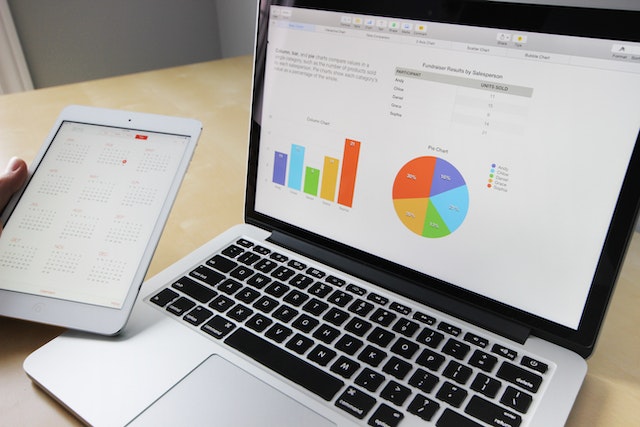Every morning, someplace in the world, a marketer begins a new round of intensive data analysis, email preparation, and strategy development. Every customer’s path is methodically mapped out, personalized emails arrive in the correct inboxes, and material goes out without a hitch on social media.
You won’t find a campaign setup like this very often. It’s all happening on its own. In all honesty, on its own. Step into the age of marketing automation.
The global marketing automation industry needed to step forward in just two years, from 2021 to 2023. It leaped, growing by an estimated 22 percent to reach a whopping 5.86 billion US dollars. By 2030, the industry is anticipated to grow twofold to surpass the mind-boggling 13.7 billion dollar mark.
It means a world of opportunity. As a marketing automation specialist, you won’t be confined to a single industry. From tech startups to healthcare giants, retail behemoths to boutique agencies, your skills will be in high demand.
So, are you ready to ride the wave of this digital revolution? Let’s start and see how you can pave a path in the super-rewarding landscape of marketing automation.
Table of Contents
What Is a Marketing Automation Specialist?
In the marketing landscape, the marketing automation specialist is the virtuoso who ensures every note is pitch-perfect and every rhythm is in sync. Long story short, a marketing automation specialist is the tactical executor who brings marketing strategies to life.
They are the architects of marketing automation campaigns, meticulously designing, developing, and implementing them. But their role continues. They monitor campaign performance, analyze data, and optimize strategies, ensuring every campaign hits the right note with the audience.
Imagine a day in the life of a marketing automation specialist. It starts with a coffee and a deep dive into campaign data.
Then they:
- Scrutinize open rates, click-through rates, and conversion rates, looking for patterns, trends, and opportunities.
- Troubleshoot automation workflows, ensuring every email, every social media post, and every customer interaction is seamless.
- Collaborate with other marketing team members, sharing insights, discussing strategies, and planning future campaigns.
- Play a strategic role in driving customer engagement, lead generation, and sales.
They are the puppeteers who pull the strings behind personalized customer experiences, targeted marketing messages, and efficient lead-nurturing processes.
So, suppose you’re ready to be the maestro of marketing automation, create successful campaigns, and drive customer engagement. In that case, the role of a marketing automation specialist might be your perfect performance.
Why Become a Marketing Automation Specialist?
The answer is as multifaceted as the role itself.
#1. Intellectual stimulation and creative problem-solving
As a marketing automation specialist, you’ll be at the intersection of data analysis and creative strategy.
You’ll decipher patterns from complex data sets, understand customer behaviors, and use these insights to craft compelling marketing strategies. This role perfectly blends left-brain analytical thinking and right-brain creativity, offering a constant intellectual challenge.
#2. Working with cutting-edge technology
Being actively involved with modern marketing automation technologies positions you at the heart of digital marketing advancements.
Learning to use these new programs is a great way to extend your professional horizons and get a leg up in the rapidly developing field of marketing technology.
In simple terms, this presents an opportunity to develop personally and professionally, broaden one’s perspectives, and participate fully in the continuing digital transformation.
Read also: Marketing Automation 101 For The Beginner [With Examples]
#3. High earning potential
The financial rewards in this field are significant. The role offers a lucrative career path with a median salary of $61,100 and top earners making up to $75,000.
As you gain experience and expertise, your earning potential can significantly increase. It’s a role that offers intellectual satisfaction, financial stability, and growth.
Read also: Data-Driven Marketing Automation For Maximum Impact
#4. Career growth and progression
The field of marketing automation offers abundant opportunities for career progression. You can start as a marketing automation specialist and climb up the ladder to roles like marketing automation manager, director, or even Chief Marketing Officer (CMO).
#5. Increasing demand and job market trends
The appetite for marketing automation experts is surging. Recent data from a Statista survey in February 2023 highlighted that nearly 60% of marketing leaders intend to boost their marketing automation budgets in the upcoming year.
Additionally, a quick glance at LinkedIn reveals more than 11,700 active job listings for positions such as “Marketing Automation Specialist”, “Marketing Automation Manager”, and “Marketing Automation Strategist”.
This represents a nearly 10-fold growth in demand for marketing automation specialists since January 2020. These trends indicate a promising job market for aspiring marketing automation specialists, making it an opportune time to enter the field.
Read also: Marketing Automation Landscape: A Guide To Scaling Your Business
Essential Skills and Knowledge for a Marketing Automation Specialist
Becoming a marketing automation specialist is meant to master a complex symphony. Each skill you acquire is a note that contributes to the harmonious performance of a successful marketing campaign.
Let’s dig deep into the essential skills and knowledge that form the melody of this role.
#1. Technical skills
Technical skills form the rhythm of a marketing automation specialist’s role. They provide the steady beat that guides the campaign’s performance.
Key technical skills include:
- Data Analysis: This is the backbone of marketing automation. It’s crucial for understanding campaign performance, identifying trends, and making data-driven decisions. A specialist must analyze data to optimize campaigns and drive results.
- Customer Segmentation: This skill involves categorizing a company’s customer base into distinct segments. It’s essential for personalized marketing and targeted campaigns.
- Campaign Management: This involves planning, executing, and monitoring marketing campaigns. It requires deep know-how of marketing strategies and customer behavior.
- SEO and SEM: Bringing visibility is one of the primary duties of this role and befriending search engines falls in the way. In fact, SEO and SEM skills are often listed as must-haves for these job postings.
- Content Management: Creating and managing engaging content is crucial to a marketing automation specialist’s role.
Read also: Making Sense Of The Types Of Marketing Automation
#2. Tool proficiency
A marketing automation specialist must be proficient in using various marketing automation tools. These tools are the instruments that bring the campaign to life.
- For Email Marketing: Tools like MailChimp and Constant Contact are essential for creating and managing email campaigns.
- For Social Media Management: Tools such as Hootsuite and Buffer help schedule posts, manage content, and track performance across different social media platforms.
- For Customer Relationship Management (CRM): Tools like Salesforce and Zoho CRM are crucial for managing customer data and interactions.
- For Marketing Automation: Tools like HubSpot, Marketo, and Pardot are essential for automating marketing tasks and managing campaigns.
Read also: Marketing Automation For Financial Advisors: Beyond the Basics
#3. Soft skills
Soft skills are the melody that adds depth and richness to the role. They include:
- Problem-Solving: Challenges in marketing automation are inevitable. Your capacity to quickly pinpoint and address issues is vital. It’s about transforming potential roadblocks into growth opportunities.
- Creativity: The marketing realm is saturated, making originality invaluable. Crafting unique campaigns and tapping into untapped niches can set you apart from the crowd. The goal is to resonate with audiences in fresh, memorable ways.
- Adaptability: The MarTech industry is in constant flux, especially with AI and ML innovations. Staying ahead means continuously learning, adjusting, and embracing new methodologies.
- Communication: It’s one thing to understand complex data – it’s another to make it accessible to someone else. Your role bridges the gap between intricate technicalities and actionable insights. Can you inspire a content writer with data? Can you convince a stakeholder with clear, compelling narratives? That’s the essence of impactful communication in this field.
- Attention to Detail: Marketing automation involves managing multiple elements, from email templates to automation workflows. A keen attention to detail is necessary to ensure every aspect is in place and every campaign runs smoothly.
#4. Programming knowledge
Interestingly, a good number of employers expect marketing automation specialists to know programming languages like HTML, CSS, and Java, and even some back-end knowledge like PHP.
This can help in customizing automation workflows and integrating different marketing tools.
Read also: Marketing Automation Use Cases & Examples From Top Brands
Educational Background and Training
Becoming a marketing automation specialist can be done via the formal education route by getting professional certifications, and continuous learning. However, it’s not a necessity unless you aren’t ready to self-learn.
#1. Educational pathways
When considering a career in marketing automation, the right academic background can set the stage for success. Here are some degrees that can equip you with the necessary skills and knowledge:
- Digital Marketing degree: Digital marketing know-how provides students with in-depth training in the technologies and tactics of digital advertising. As you equip yourself with SEO, PPC, content marketing, and, of course, automation tools, you will be nothing short of extraordinary to compete in today’s digital marketing environment.
- IT or CS degree: Given the tech-heavy nature of automation, a background in IT or computer science can be invaluable. The skills you learn in software development, database management, and maybe even machine learning will come in handy in various automation contexts.
- Behavioral Science or Psychology Degree: At its core, marketing is about understanding people. A degree in behavioral science or psychology can provide insights into consumer behavior, decision-making processes, and the triggers that drive action.
- Statistics or Data Analytics Degree: Marketing automation relies heavily on data. Being able to analyze and interpret this data to make informed decisions is crucial. An education in statistics or data analytics might equip you to draw valuable conclusions from seemingly meaningless data.
Moreover, continuous learning, certifications, and hands-on experience often hold as much weight, if not more, than formal education. The key is to combine foundational knowledge with practical application and a passion for staying updated in this dynamic field.
#2. Certifications
Professional certifications in marketing automation are valuable assets that can set you apart in the job market. They demonstrate your specialized knowledge, expertise, and commitment to the field.
Here are some notable certifications:
| Certification | Description | Duration & Cost |
| Marketo Certified Expert | Validates your comprehensive understanding of Marketo’s features, functionality, and best practices. It involves passing an email marketing, lead management, analytics, and automation exam. | 2-4 weeks
$100-$200 |
| HubSpot Inbound Marketing Certification | Instructs on the application of inbound marketing techniques and approaches. The curriculum covers areas like content development, search engine optimization, generating leads, strategies for social media and email marketing, as well as data analysis | 6-8 hours
Free |
| Oracle Eloqua Certified Implementation Specialist | It provides you with the skills and knowledge to implement Oracle Eloqua, a cloud-based marketing automation platform successfully. It validates your ability to design, configure, and manage Eloqua campaigns and programs. | 6-8 weeks
$500-$1,000 |
| Pardot Specialist Certification | Verifies your expertise using the Pardot marketing automation platform to create, manage, and optimize marketing campaigns. It consists of a multiple-choice exam and a hands-on project. | 8-10 hours
$200 |
| Adobe Campaign Certified Expert | Demonstrates your proficiency in the Adobe Campaign platform. It validates your ability to use the platform to create, manage and execute campaigns. | 4-6 weeks
$400 per exam |
Apart from that, online learning platforms like Coursera, Udemy, and LinkedIn Learning offer numerous courses on marketing automation.
Read also: Mastering The Interview: Essential Marketing Automation Questions And How To Answer Them
How To Gain Practical Experience in Marketing Automation
Practical experience is as valuable as formal education. It’s the crucible where your knowledge is tested, and your skills are honed.
Here’s how you can get inside the industry.
#1. Internships and entry-level positions
Internships and entry-level positions should be your first focus toward gaining practical experience.
These positions will enable you to:
- Work on live projects
- Learn from experienced professionals
- Understand the nuts and bolts of the industry.
During this span, understanding the metrics, and getting a feel for the rhythm of marketing automation campaigns.
Why you should do an internship? About one-third of companies expect a marketing automation specialist to have previous experience with marketing automation. Internships and entry-level positions are your ticket to gaining this experience.
Look for opportunities on job portals, company websites, and networking platforms like LinkedIn. Don’t be afraid to start small – even a tiny role in a small company can provide valuable experience.
#2. Personal projects
Personal projects are a great way to gain hands-on experience. You could create a mock marketing automation campaign for a hypothetical product or service.
This could involve creating email templates, setting up automation workflows, segmenting the audience, and analyzing the campaign’s performance.
Such projects not only help you understand the practical aspects of marketing automation but also provide tangible evidence of your skills that you can showcase to potential employers.
Consider volunteering your skills for a non-profit organization or a small business. This can provide real-world experience while also contributing to a good cause.
#3. Networking and continuous learning
Networking is a valuable tool for learning from industry professionals. Connect with experts on platforms like LinkedIn, join relevant groups, and participate in discussions.
This can provide insights into the industry, tips on career progression, and even job opportunities.
#4. Staying updated
Continuous learning is a lifelong commitment in the rapidly evolving field of marketing automation. Stay updated with industry trends and advancements by following resources like Marketing Land or MarTech Today.
Attend webinars, workshops, and conferences. Subscribe to newsletters from leading marketing automation platforms. The more you learn, the more you grow.
Read also: A Short And Sweet Guide To Content Marketing Automation
Career Path and Progressions
A career in marketing automation is not a static one – it’s a journey filled with opportunities for growth and progression.
#1. From specialist to manager
As a marketing automation specialist, you start your journey by mastering the technical aspects of marketing automation, such as campaign management, data analysis, and tool proficiency.
With experience and expertise, you can progress to a managerial role, such as a marketing automation manager.
This role involves:
- Overseeing a team of specialists
- Coordinating marketing automation strategies
- Ensuring the successful execution of campaigns.
It requires technical skills, leadership skills, team management, and a deep understanding of marketing strategies.
#2. From manager to director
Stepping up to the role of a Marketing Automation Director signifies a transition from overseeing individual campaigns to architecting the broader marketing automation blueprint for the organization.
Skills needed
- Strategic insight: Crafting and refining the overarching marketing automation approach.
- Decision-making: Making pivotal choices that impact the organization’s marketing trajectory.
- Business acumen: A thorough grasp of the organizational structure and market dynamics.
In the directorial role, your mandate will encompass ensuring that the marketing automation strategies resonate with the company’s overarching business objectives. This also involves liaising with various departments and leading the marketing automation team to achieve collective goals.
#3. From director to CMO
The Chief Marketing Officer (CMO) role represents the apex of a marketing automation career.
Skills needed
- Strategic vision: Setting and executing the company’s overarching marketing direction.
- Integration: Incorporating marketing automation into the broader business strategies.
- Analysis: Evaluating the ROI of marketing campaigns and initiatives.
- Leadership: Guiding diverse teams and ensuring alignment of marketing goals with company objectives.
In addition to these skills, the person in this job needs to know a lot about marketing metrics and be able to think strategically and lead well.
#4. Freelancing in marketing automation
Freelancing offers a whole different opportunity for marketing automation specialists.
Skills needed
- Tool proficiency: Mastery of various marketing automation tools.
- Analytical ability: Evaluating campaign performance and deriving insights.
- Project management: Juggling multiple projects at the same time and meeting all deadlines without compromising on work quality.
- Adaptability: Tailoring strategies based on individual client needs and market dynamics.
Freelancers in this domain work with diverse clients, from startups to well-established entities. The primary goal is to optimize marketing automation processes, ensuring value addition, enhanced campaign efficiency, and tangible results.
#5. Entrepreneurship in marketing automation
Starting a marketing automation consultancy is a significant step. It’s not just about understanding the tools but about providing holistic solutions to businesses.
Skills needed
- Holistic understanding: Grasping the entire marketing automation ecosystem.
- Client assessment: Identifying and addressing specific client needs.
- Continuous learning: Keeping abreast of industry trends and innovations.
- Team development: Training and leading a team to ensure top-notch service delivery.
As the head of a marketing automation agency, your role extends beyond mere tool expertise.
It will be more around crafting comprehensive solutions that cater to immediate marketing challenges while also aligning with the client’s long-term vision and objectives.
#6. The self-employed specialist
As a self-employed marketing automation specialist, you’re an independent professional offering business services.
This could involve consulting on marketing automation strategies, implementing campaigns, or providing training on marketing automation tools.
Being self-employed can be seen as a bridge between freelancing and traditional employment. It enables you to specialize in a specific area of marketing automation and increase your marketability.
Read also: Marketing Automation KPIs You Need Like Coffee (Must-Have)
Finding Marketing Automation Specialist Opportunities
Finding relevant places to put your newly acquired information and abilities is just as important as studying them if you want to advance your career as a marketing automation specialist.
Here are some methods that can help you find these chances:
- Job portals: Websites like LinkedIn, Indeed, and Glassdoor are treasure troves of job opportunities. You can filter jobs based on your preferences, such as location, experience level, and company size. Regularly checking these portals and setting up job alerts can help you stay updated with the latest opportunities.
- Company websites: If you have specific companies you’d like to work for, regularly check their career pages. Companies often list job openings on their websites before advertising them elsewhere.
- Networking events: Both online and offline networking events are valuable sources of opportunities. They allow you to connect with industry professionals, learn about unadvertised positions, and even get referrals. Look for events in your area or join online forums and communities related to marketing automation.
- Social media: Platforms like Twitter, Facebook, and LinkedIn aren’t less than an opportunity mine if you are clever enough. Many companies often post job openings on their social media profiles. Following companies you’re interested in can help you stay updated with these opportunities.
- Freelance platforms: Websites like Upwork and Freelancer list freelance opportunities for marketing automation specialists. These can be a great way to build your portfolio.
Read also: The Ultimate Guide To B2B Marketing Automation In The Digital Age
Conclusion
The rise of the marketing automation specialist role underscores the transformative impact of automation in the marketing sector. With the industry experiencing significant growth, there’s an increasing demand for professionals adept at leveraging automation tools and strategies.
This blog post offers a detailed guide for those aspiring to step into this pivotal role. It sheds light on the core responsibilities, essential skills, potential career paths, and ways to find opportunities.
The financial and intellectual rewards associated with the role make it an attractive career choice. Furthermore, the versatility ensures that one’s expertise will be in demand across various sectors.
For those ready to dive into this digital revolution, the key is continuous learning, staying updated with industry trends, and gaining hands-on experience. Whether opting for a traditional job, freelancing, or starting your own venture, marketing automation offers vast opportunities for growth and fulfillment.
Commit to lifelong learning – the future of marketing automation is promising, and it beckons you to make your mark.
Did you find this blog post helpful? If so, please share it with friends who are interested in a marketing automation career.






